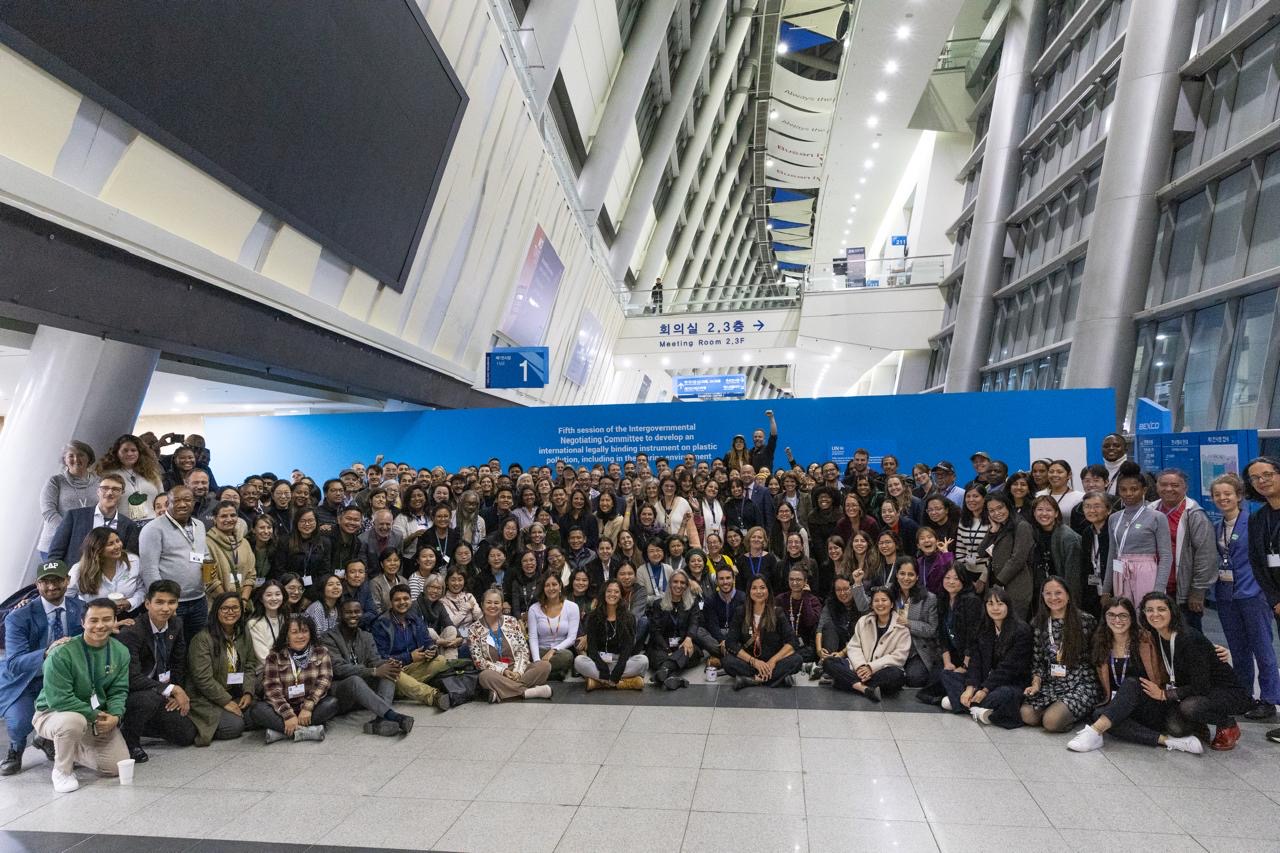The Sustainable and Just Economic Systems (SJES) programme team from the Quaker United Nations Office (QUNO), represented by Associate Representative Andrés Naranjo and Senior Technical Advisor Ronald Steenblik, recently participated in the fifth Intergovernmental Negotiating Committee (INC-5), held from 25 November to 1 December in Busan, Republic of Korea, as part of the FWCC delegation.
While INC-5 concluded without finalizing an international legally binding instrument to end plastic pollution (ILBI), as per UNEA Resolution 5/14, it laid the groundwork for continued negotiations at INC-5.2 in 2025. QUNO’s engagement included providing thought leadership through our research and collaborating with delegates and civil society to drive progress towards an ambitious, inclusive, and robust ILBI.
QUNO’s Contributions
- QUNO submitted a plenary statement emphasizing the need for ambition and inclusivity in the treaty. Critical elements—such as obligations to reduce production, eliminate harmful subsidies, and address trade in plastics—were missing from the Chair’s fifth non-paper, which now serves as the basis for further negotiations. These gaps remain key challenges. Read our full opening statement here.
- QUNO released Plastic Money: Turning Off the Subsidies Tap (Phase 2), supported by Dalberg Catalyst and the Rockefeller Foundation. The report highlights how subsidy removal could significantly reduce primary polymer production while having minimal impacts on consumer prices. Explore the full report here.
- In collaboration with Eunomia and IUCN, QUNO hosted a well-attended side event discussing the Phase 2 report findings and the economic, trade, and legal implications of subsidy removal. An audio recording will be available soon.
Throughout the week, QUNO actively tracked negotiations and engaged in bilateral discussions. Key takeaways include:
- Convergence: Over 100 countries expressed support for upstream measures, including production reduction and phasing out harmful chemicals.
- Divergence: Persistent pushback from a small group of states on critical issues like production limits and financing mechanisms.
- Transparency Challenges: Limited civil society access during INC-5 underscored the need for inclusivity in future negotiations.
As the process continues, QUNO remains steadfast in advocating for an inclusive and ambitious treaty. We look forward to building on our contributions at INC-5, collaborating with partners, and advancing systemic solutions through Phase 3 of our "Plastic Money" initiative.
Together, we can turn ambition into action.
Photo Caption:
Members of the Civil Society and Rights Holders Coalition at INC-5 – Credits to the Earth Negotiations Bulletin (IISD).







